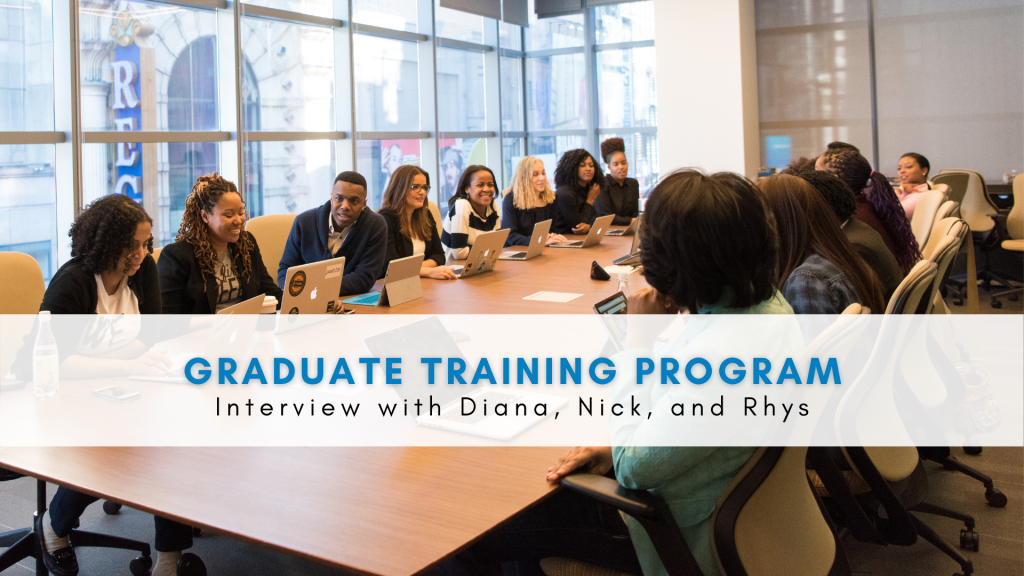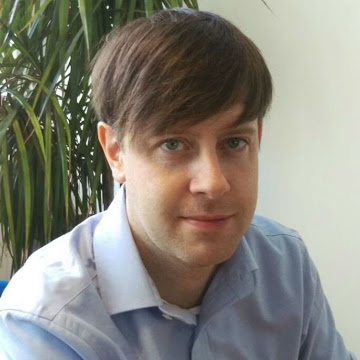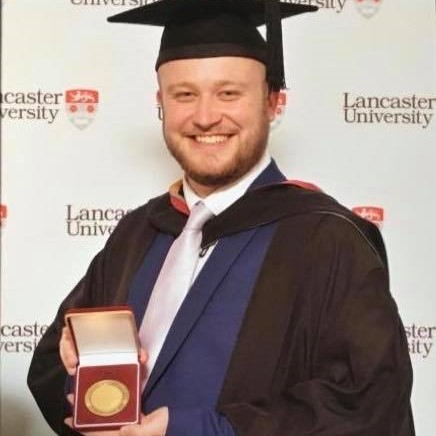Interview with Diana, Nick, and Rhys from Veramed
Are you a master’s student or just graduated from a university? Or do you want to bring on statisticians or programmers fresh out of university onto your team? This episode is for you. We’ll talk about a tested and refined program to onboard statisticians without industry experience smoothly. We’ll cover:
- What is the Graduate Training Program at Veramed?
- How is the training conducted?
- What happens after the program?
Veramed’s graduate training program aims to smooth the transition from graduate to effective member of a clinical biostatistics team. The comprehensive 12 week syllabus equips you with relevant skills and knowledge so that by the end of the training program you will feel prepared for your new role as a Statistician or Programmer. As well as in depth technical training, you will get an overview of the industry and a range of soft skills to help you manage projects, communicate with clients, and follow specific processes.
Even if you have some technical experience, our comprehensive program ensures that any potential knowledge gaps are addressed. As the program progresses you will take on more project work and client-specific training, and by the end of the 12 weeks you will have sufficient skills to work on client projects.
Listen to this episode while we dive deep into these advantages of joining this program:
- Transition from graduate to effective member of a clinical biostatistics team
- Depth technical training
- Training scheduling
- Fully fledged Statistician or Programmer and permanent employee
- Access to a broad range of additional training that is part of the Veramed Excellence Programme
Diana Stuart
Senior Manager, Programming
Diana has been programming in SAS since 1996, moving from banking to the pharmaceutical industry in 1998. Her experience includes ten years as an independent contractor and involved working for a number of pharmaceutical companies with a significant global presence. She is an experienced line manager who has a passion for the professional development of programmers and statisticians.

Leveraging 20 years of programming expertise across the pharmaceutical sector, Diana is one of the critical success factors behind the Veramed Graduate Training Programme, which she set up and coordinates each year. Alongside this challenging role, Diana supports employee engagement activities, ensures consistency in approach and advises on line management styles to foster and encourage valued contributions across the company as a whole.
Diana has been actively involved with Pharmaceutical Users Software Exchange (PHUSE) since 2009, editing and contributing to the PHUSE quarterly newsletter and more recently contributing to the PHUSE blogs, as well as active participation in the EU conference across the Professional Development, Industry Starters, University Day and Poster streams. In 2018, Diana was honoured to be made a Lifetime Honorary Member of receive a Lifetime achievement for PHUSE for her significant contribution to the organisation over a number of years.
Nick Cowans
Manager, Statistics
Nick moved from a career in research to become a statistician in the pharmaceutical industry when he joined Veramed in 2013 after completing an MSc in statistics. Over the past 7 years, Nick’s role at Veramed has developed as the company has grown and he has gone from statistical programming on a large respiratory study to overseeing several oncology studies as a project group lead.
In addition, Nick is a line manager at Veramed and has line reports from three generations of graduates who have benefitted from the Veramed Graduate Training Programme as it has also progressed over the years.
Rhys Warham
Statistician I
Rhys relatively new to the pharmaceutical industry having joined Veramed as a Statistician in September 2020 as part of their graduate training program. The 12-week program provides a comprehensive introduction to the industry and develops the skills you need to have a successful career working for a CRO. Despite the unique experience of onboarding virtually due to the COVID-19 pandemic, those at Veramed responsible for organising the program ensured that we still received high quality training in numerous topics ranging from effective presentation skills to SAS programming.
Prior to joining Veramed, he spent four years studying at Lancaster University, having completed both my Undergraduate and Postgraduate degrees there. Between 2016 and 2019 he completed a BSc in Mathematics and Statistics. Throughout his undergraduate degree, he had an excellent academic record and was awarded the Alan Talbot Memorial Prize, Lloyd Prize and David Astley Memorial Prize for his performance in his first, second and third year respectively. Given his performance in the first two years of his degree, he was invited to complete a supervised project in place of one of his third year modules, with the intention of developing the skills required to complete a dissertation as part of a postgraduate degree. He completed a project titled ‘Statistical Modelling of Surrogate Endpoints in Clinical Trials’ under the supervision of Dr. Andrew Titman and, after successfully applying for an LMS Undergraduate Research Bursary, spent the following summer completing a follow-up project titled ‘Illness-death modelling of oncology clinical trials: Leveraging the semi-Markov assumption’. It was these two projects, as well as the Medical Statistics module studied during the final year of his undergraduate degree, that motivated me to pursue a career in the Pharmaceutical industry. The exemplary work he had completed relating to Medical Statistics that year was recognised by a PSI Award in June 2019. He graduated with first class honours the following month and was presented with a Lancaster University Chancellor’s medal at the graduation ceremony.
He returned to Lancaster in October 2019 to study on their MSc Statistics course. There are different optional pathways you can follow as part of the course, and he opted to take modules contained within the Medical and Pharmaceutical pathways. Having completed the taught component of the course in spring 2020, they were informed that our dissertations would be completed remotely with online supervision due to the developing situation with COVID-19. I completed a dissertation project titled ‘Predicting Recruitment to Clinical Trials’ under the supervision of Matthew Ludkin and was subsequently awarded the Tessella Industrial Prize for ‘Best Computational MSc Statistics Project’. He graduated with a distinction in December 2020.
Listen to this episode and share it with others!
Never miss an episode!
Join thousends of your peers and subscribe to get our latest updates by email!
Get the


